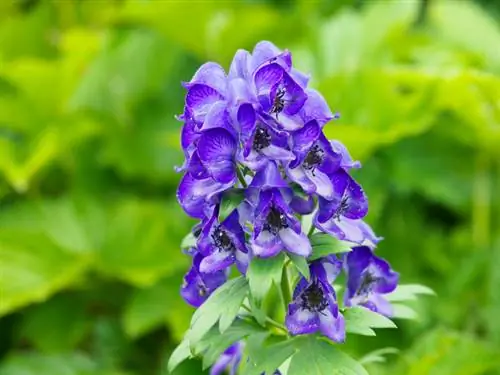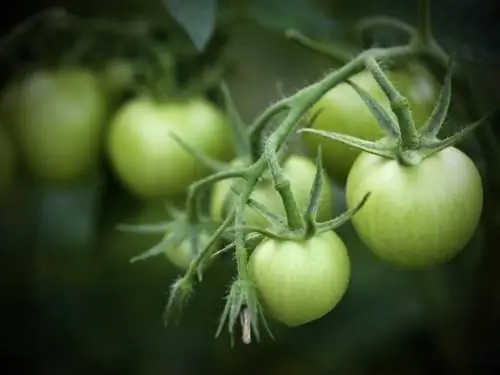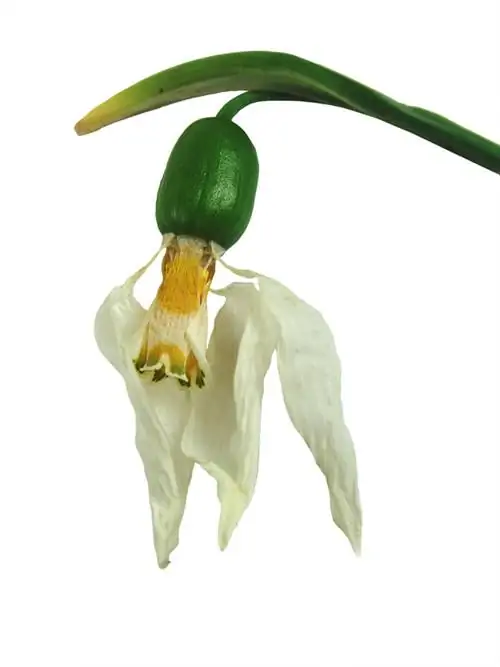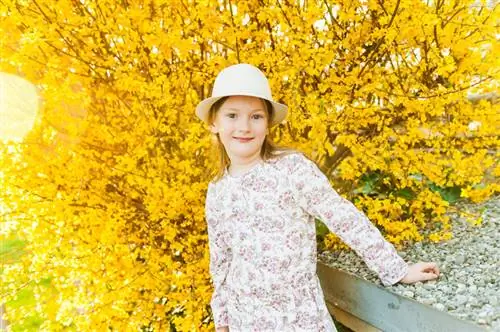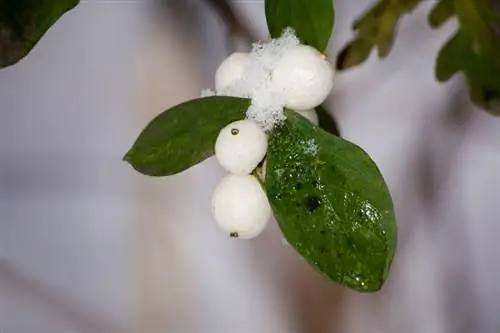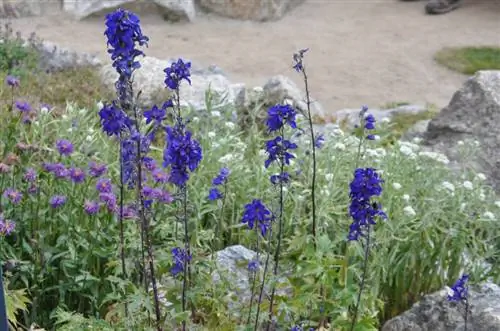- Author admin leonars@hobbygardeners.com.
- Public 2023-12-16 16:46.
- Last modified 2025-01-23 11:20.
It's not for nothing that the blue monkshood (Aconitum napellus) also has the common name “goat's death”: after all, this plant is one of the most poisonous perennials in all of Europe, with the poison concentration in the roots and seeds being the highest.
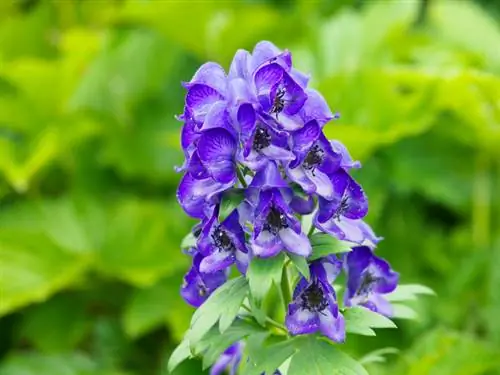
Are monkshood seeds poisonous?
The seeds of the blue monkshood (Aconitum napellus) are very poisonous because they contain high concentrations of aconitine and other alkaloids. Poisoning can lead to nausea, sensitivity to cold, cardiac arrhythmias, cramps, paralysis and circulatory failure.
Be careful when sowing monkshood in the garden
Before sowing monkshood, you should consider whether the plant poses a danger to children playing in your garden. Since monkshood seeds are dark germinators, sowing them directly in the bed poses no immediate danger to free-roaming pets in the garden. However, just touching the plant can cause numbness, even on uninjured skin. Possible symptoms of poisoning (due to aconitine and other alkaloids and alkamines) when consumed are:
- severe nausea
- Sensitivity to cold
- Cardiac arrhythmias
- severe cramps
- Paralysis
- Circulatory paralysis resulting in death (while fully conscious)
Store the seeds safely
So that children or pets do not have accidents with monkshood seeds, you should store purchased and self-harvested seeds in a particularly securely closed and clearly marked place until sowing. It is also a good idea to cut the plants back immediately after flowering so that seeds cannot form in the first place.
Tip
You should also exercise caution when dividing and transplanting monkshood for rejuvenation and propagation. Even small amounts of the root can have an extremely toxic effect if ingested by pets such as dogs or rabbits. Therefore, the roots should be put back into the ground quickly when transplanting and never left unattended.

